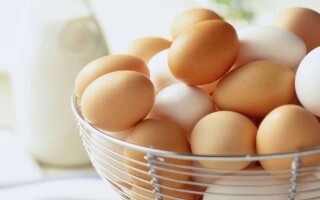
In the late sixties and seventies, many studies were conducted on the factors influencing the possibility of cleaning eggs after their storage. One of the studies indicated an improvement in the cleaning process, however, this was influenced by how eggs were stored. As eggs age, they gradually lose moisture through their porous shell, which increases the size of the air cell, while the remaining content shrinks. In the case of the egg, it is suggested that the carbonic acid attacks the calcium carbonate in the eggshell, which leads to its removal.
Associated professor of the National University of Australia region Queensland, Bolomi Bori explained: "A decrease in pH level increases the membrane and egg white release rate.
Many external factors of the egg washing process consider that it is started with boiling water, and then the temperature should be reduced to a storage temperature before the accurate placement of eggs in it yields better results. However, it is recommended to follow this method with eggs of room temperature to avoid a thermal shock due to abrupt temperature change.
The next step will be pumping eggs in the necessary quantity and timing (usually from three to five minutes for liquid yolk, from six to seven minutes for hard yolk and from twenty to fifty minutes for medium-cooked yolk) in cold water. In the end, nobody wants the egg to end up covered with sticky shells.
There are many alternatives proposing improvements in the cleaning possibilities, including adding salt to boiling water, but the results of this method can vary. The temperature of storage also plays a role. One of the reasons is linked to the size of the egg white.
The findings show that eggs held at around 22 degrees Celsius are cleaned better than those that were stored at temperatures lower than 13 degrees Celsius or even in the refrigerator at 3-5 degrees Celsius.














